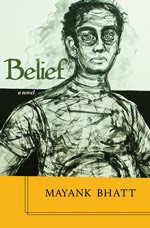 |
| Dr. Asghar Ali Engineer |
Sunday, August 24, 2014
Striving for Peace and Harmony Tribute Volume for Dr. Asghar Ali Engineer
At a time when secularism is
being sought to be redefined in India, in the wake of Narendra Modi’s unprecedented
electoral victory, it’s perhaps pertinent to recall the life and struggle of
someone like Dr. Asghar Ali Engineer (1939-2013).
Dr. Engineer dedicated his life
to ensuring minority human rights are acknowledged, respected and ensured in a state
that while it pledged secularism publicly was not always fully committed to its implementation.
A social reformer who waged a
war on theocracy within his Dawoodi Bohra community, Dr. Engineer’s work
encompasses diverse areas and includes, among other subjects, the understanding
religious violence in India, the role of religion in democratic societies, the
role and place of women in Islam, the study of Indian history from a secular,
non-sectarian perspective.
(Dawoodi Bohras are Shia
Muslims, spread across India. Read about the community here: Dawoodi Bohra)
A prolific writer, Dr. Engineer
has authored over 70 books, and has been the recipient of the alternate Nobel Prize
in 2004. He started the Centre for Study of Society and Secularism, which has
emerged as a premier institution for spreading awareness on secular issues. After
his demise last year, the centre is run by Dr. Ram Punyani and Advocate Irfan
Engineer.
Last year, the centre published
a tribute volume – Striving for Peace and Harmony Tribute Volume for Dr. Asghar Ali Engineer. It contains short tributes by Dr. Engineer’s many associates, friends and admirers.
The volume is edited by Ram Puniyani and Irfan Engineer. Pickering,
Ontario, based artist Farida Ali has done the cover portrait of the book (see
image).
The contributors to the volume
include: Ram Puniyani, Irfan Engineer, Vinod Mubayi, Harsh Mander, Hilal Ahmed,
Uday Mehta, Shaukat Ajmeri, Javed Anand, Dr. Ranu Jain, Prof. M Hasan, Dr.
Ishtiaq Ahmed, Zakia Soman, LS Herdenia, Anand Patwardhan, Sumanto Al Qurtuby,
Jyoti Punwani, Swami Agnivesh, Mazher Hussain, Meena Menon, Qutub Jahan, Syed
Ali Mujtaba, Pritam K. Rohila, Zahir Janmohammed, Maqbool Ahmed Siraj, Seema
Chisti, Zarina Patel, Asad Bin Saif, Farzane Versey, Ramu Ramanathan and Neha
Dabhade.
Here’s an extract from the book
– a piece by veteran journalist and activist Jyoti Punwani, which encapsulates
the sentiments of many who knew the man.
There
will never be another Asghar Ali
The
political establishment, all the way up to Indira Gandhi and Vajpayee, stood
solidly behind the Syedna. Yet, Engineer remained a Reformist throughout, and
not just in his personal life. Under his guidance, the Reformists became a
force to reckon with, with women at the forefront of the movement. He showed
the same courage in openly organizing support for the Shahbano judgement when
the Muslim establishment mounted a campaign against it.
For
me, Ashgar Ali Engineer was many things – a fount of knowledge and a guru, yet
one so devoid of arrogance that I was able to, over the past 20 years, interact
with him as a friend. I first met him as a member of the Committee for the
Protection of Democratic Rights, of which he was both founder and
vice-president. In the late ‘70s and the early ‘80s, CPDR members used to
demonstrate holding placards in a narrow lane across the road from Badri Mahal,
Fort – that was as close to the Bohra headquarters as the police would allow us
to get, Yes this insignificant bunch of youngsters, led by Engineer and a few
other Reformists, would be considered enough of a threat to be stoned by
orthodox Bohras. I used to be terrified, but not the much older Engineer.
As
a novice in journalism, I turned to Engineer for everything concerning Muslims –
be it history, the freedom movement, communal politics. Always ready to share
his immense knowledge, he never grew impatient at my endless questions. I would
interview others too, but no one had his rounded, secular, yet scholarly
perspective.
In
1984, after seeing the partisan conduct of the police towards the Shiv Sena,
during the riots that broke out in Bhiwandi, Thane and Mumbai, I told him I
supported those young Muslims who felt revenge was the only solution. “No,
never,” was his immediate response. “Revenge will only set off an endless cycle
of violence, which will help no one, Muslims least of all.”
His
way was to change minds. But that will take forever, I replied. Yes that’s what
he never stopped trying to do through his writings and interactions with
youngsters, policemen and IAS trainees. Every communal riot was investigated by
him personally, or by his team, to trace the root causes, for as he said,
religion was not the cause of conflict, its political use was.
Subscribe to:
Post Comments (Atom)




No comments:
Post a Comment